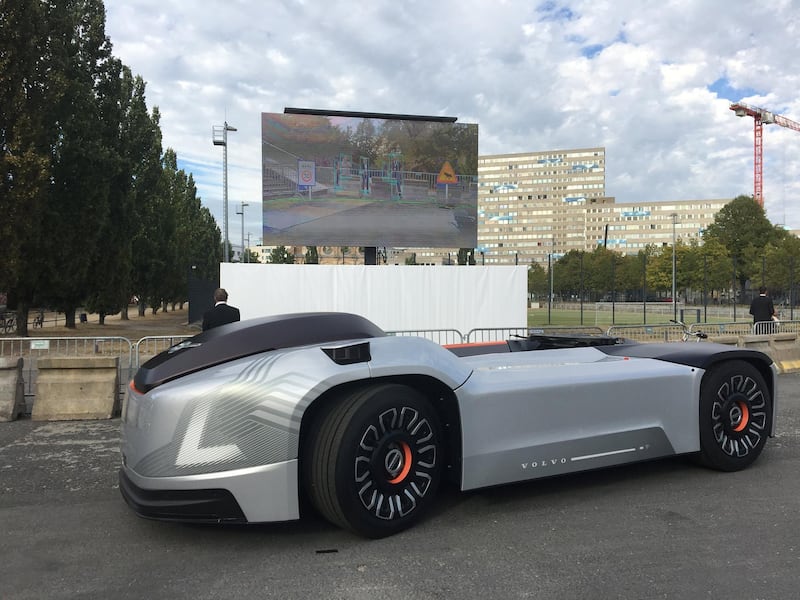Volvo is planning to roll out its first fleet of autonomous vehicles (AVs) to the European market by 2021.
"So far, we have not decided on how we will roll out our first fleet of commercial AVs but it will be a limited edition," Marcus Rothoff, autonomous drive solution architect, director at Volvo, told The National.
“Probably the first roll-out will be done in Europe before we start looking at other markets. In the Middle East, the UAE could be a potential market considering the infrastructure growth, good roads and better connectivity.”
The UAE is among the top 10 countries in the world prepared to accommodate driverless vehicles, according to a report by consultancy firm KPMG. Dubai offers a huge potential market for AV manufacturers; it is targeting 25 per cent of all car journeys to be done by self-driving cars by 2030. The goal was set after Sheikh Mohammed bin Rashid, Vice President and Ruler of Dubai, launched the Dubai Smart Self-Driving Vision in 2016.
“In line with the UAE Vision 2021 of creating sustainable environment and infrastructure, we aim to lead the change towards building smart cities,” said Mr Rothoff.
Globally, at least one in four new cars sold will be fully autonomous by 2035, according to the Boston Consultancy Group, a global management consulting firm.
_______________
Read more:
Chinese car brand Haval aims to replicate 4x4 success in the UAE
US makers of driverless cars must get past legislative speed bump
_______________
Gothenburg-headquartered Volvo, which is a subsidiary of Chinese automotive company Geely, is currently testing its AVs. The company is focusing on developing safe self-driving solutions on the roads of Sweden before venturing out into other markets for testing. Automakers GM, Tesla, Mercedes and Ford are also in the race to develop the first AV prototype for commercial sale - no self-driving cars are available yet to the general public.
“We first want to be 100 per cent sure on Sweden roads and only after that we can think about testing our AVs in other countries. It will also depend on how good the infrastructure is and what are the available business opportunities… and in that sense the UAE is an important market,” Mr Rothoff said.
Last year, Volvo inked a deal with Uber to supply 24,000 vehicles to be developed into AVs in collaboration with the ride-hailing company, its largest order for its driverless cars to date. Engineers from both companies are working closely to develop 4X4s with driverless technology that Uber can then develop further.
Uber suspended testing of self-driving cars after a fatal crash of one of its driverless cars in Tempe, Arizona last March. US federal regulators are investigating the crash. But Mr Rothoff said that the manufacturing of base cars for Uber is going on as per the plan and delivery is expected by early 2020.
“We will provide base vehicles that can be easily customised as per the requirements of an AV. And Uber is developing its own computers and sensors that will be put on them,” said Mr Rothoff.
Volvo is also looking for new acquisitions and mergers in the field of AVs in the Middle East.
“We are looking at what is happening around us and are trying to see if there are new partners or startups with whom we need to align with in this region.”
Volvo launched a spin-off startup called Zenuity, in January, 2017, in collaboration with Autoliv, a Swedish manufacturer of car safety systems, to develop software for self-driving cars. That venture is growing, Mr Rothoff said.
"It was started with only 200 employees and today it employs over 500 people in Sweden.”







